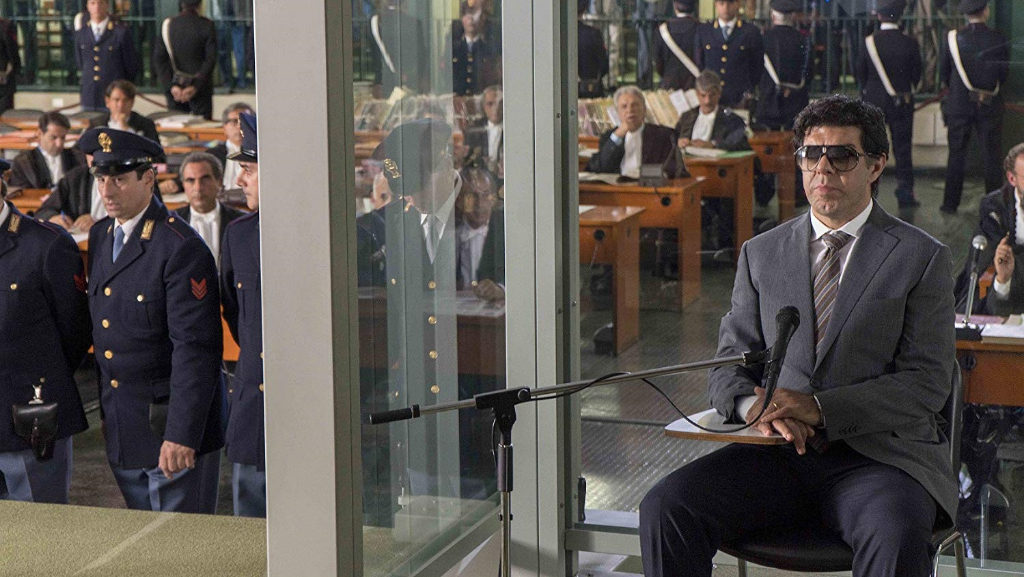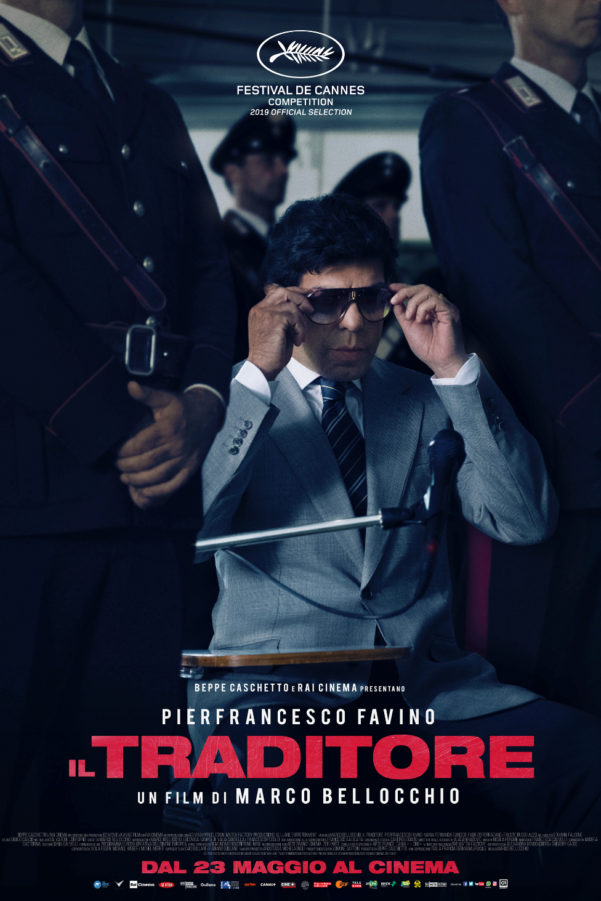The Traitor (Il traditore)

This film plays out like the ramblings of a confident drunk. Extended soliloquising; insufficient context; bizarre longuers; outré digressions; the inability to locate place and time; resistance to sense-making pacing and edits; a cast of characters so vast you need a text-based spreadsheet; no accompanying reading list; an earnestness that somehow sullies both the performance and reality of its subject; and a bravura moment of violent rupture that befits an alternative dimension of storytelling, one in which the geezer speaking isn’t completely pissed.
This must have been intended as a TV series for Sicilian audiences; it is indigestible in its current form. We flit from Rio de Janeiro to Palermo to the US; we skip around decades with gay abandon. Mafiosos are sincerely discerned and their names repeated with the utmost gravity. You have no idea who anyone is. It’s been said that a more than cursory knowledge of Italian mafia history is necessary to enjoy The Traitor. Fair enough, but the Palais library is shut and in its place exists hope for courteous narrative choices.
Tommaso Buscetta (Pierfrancesco Favino) is a Cosa Nostra made man who flees Italy with his wife Cristina (Maria Fernanda Candido) to avoid heroin-smuggling charges. Members of his family are killed during his self-imposed extradition and the film follows his desire to enact revenge. For this, he must make a deal with his legal enemy, big-shot Judge Giovanni Falcone (Fausto Russo Alesi). This sounds like an engaging set-up, one that is bogged down by bizarre retrospective exposition, illogical sequencing and baffling plot omissions. It’s not only historical details that are assumed but longstanding bonds and relationships, none of which are dramatically earned or signposted.
What’s more incredible is that director Marco Bellocchio carries off select moments with conviction, and that the acting across the board is credible and involving. The court scenes particularly possess force and tension, while the imprisoned gangsters form a Rabelaisian crowd, disrupting and distorting the cavalcade of testimony and counter-testimony, examination and cross-examination. Wailing through bars and hectoring defendants create a distinct mode of Foucault’s panopticon, in which power and surveillance are ostensibly upended.
We start with encouraging stylisations: the ticking clock and death toll, the photo-shoot that establishes character, the crimson typeface. But these elements are superseded by a punishing runtime and a muddled delivery of information. To keep up is to consign yourself to delirium. You and the film start to look alike. The eyes glaze over; the mouth subsides; the gesticulating turns laboured; the phrasing becomes imprecise; and for the entire time, it demands your attention.
Joseph Owen
The Traitor (Il traditore) does not have a UK release date yet.
Read more reviews from our Cannes Film Festival 2019 coverage here.
For further information about the event visit the Cannes Film Festival website here.























Facebook
Twitter
Instagram
YouTube
RSS